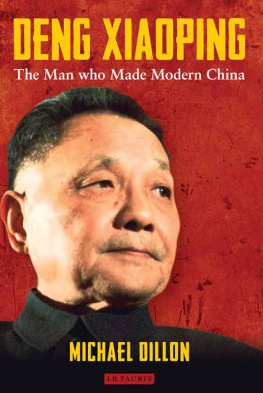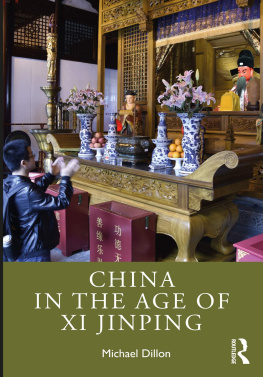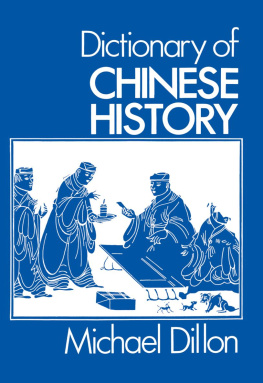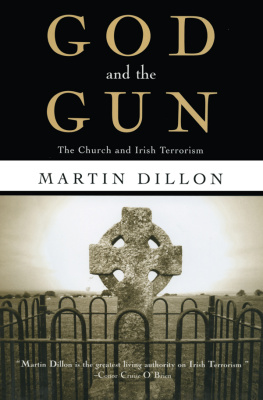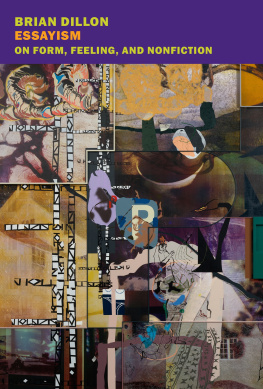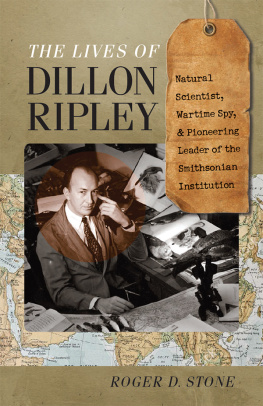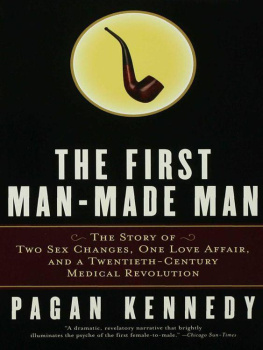OUT OF THE ORDINARY
Out of the Ordinary
A LIFE OF GENDER AND SPIRITUAL TRANSITIONS
MICHAEL DILLON / LOBZANG JIVAKA
Edited and with an Introduction by Jacob Lau and Cameron Partridge
FORDHAM UNIVERSITY PRESS
New York 2017
Copyright 2017 The Estate of Michael Dillon
All rights reserved. No part of this publication may be reproduced, stored in a retrieval system, or transmitted in any form or by any meanselectronic, mechanical, photocopy, recording, or any otherexcept for brief quotations in printed reviews, without the prior permission of the publisher.
Fordham University Press has no responsibility for the persistence or accuracy of URLs for external or third-party Internet websites referred to in this publication and does not guarantee that any content on such websites is, or will remain, accurate or appropriate.
Fordham University Press also publishes its books in a variety of electronic formats. Some content that appears in print may not be available in electronic books.
Visit us online at www.fordhampress.com.
Library of Congress Cataloging-in-Publication Data
Names: Dillon, Michael, 19151962, author. | Lobzang Jivaka, 19151962. | Lau, Jacob, editor. | Partridge, Cameron, editor.
Title: Out of the ordinary : a life of gender and spiritual transitions / Michael Dillon/Lobzang Jivaka ; edited and with an introduction by Jacob Lau and Cameron Partridge.
Description: First edition. | New York : Fordham University Press, 2017. | Includes bibliographical references.
Identifiers: LCCN 2016027581 | ISBN 9780823274802 (hardback)
Subjects: LCSH: Dillon, Michael, 19151962. | Dillon, Michael, 19151962Travel. | Lobzang Jivaka, 19151962. | Transgender peopleBiography. | Female-to-male transsexualsBiography. | SurgeonsGreat BritainBiography. | Merchant marineGreat BritainBiography. | Buddhist monksIndiaLadakhBiography. | Mahayana Buddhism. | Self-actualization (Psychology) | BISAC: BIOGRAPHY & AUTOBIOGRAPHY / Religious. | SOCIAL SCIENCE / Gender Studies. | RELIGION / Buddhism / General (see also PHILOSOPHY / Buddhist).
Classification: LCC CT3150.D55 A3 2017 | DDC 306.76/8092 [B]dc23
LC record available at https://lccn.loc.gov/2016027581
Printed in the United States of America
19 18 17 5 4 3 2 1
First edition
CONTENTS
by Susan Stryker
Susan Stryker
More than twenty-five years ago, when I first started seriously researching transgender history, I came across an anecdote in Liz Hodgkinsons 1989 biography, Michael ne Laura: The Worlds First Female to Male Transsexual, about an unpublished manuscript that whetted my curiosity. Hodgkinsons book recounted the life of a person whom she called Michael Dillon, who had been given the name Laura Maude Dillon at birth in 1915 and who would die soon after taking the additional name of Lobzang Jivaka in 1962. The manuscript in question was an autobiography that recounted this mans remarkable life, completed mere days before his untimely death.
Dillon, or Jivaka, as you will discover in the pages that follow, was a fascinating fellownot, in truth, the first female-to-male transsexual but almost certainly the first to have undergone phalloplasty (the surgical construction of a penis) in a series of procedures carried out in the late 1940s, after having started taking testosterone a few years earlier. He was an insatiably inquisitive, doggedly determined person whose quest to actualize his sense of self led him not only to transition from social womanhood to life as a man but to attend university at Oxford, become a doctor, serve as a shipboard medical officer sailing the seven seas, read widely in various religious and spiritual traditions, and eventually to take vows as a novitiate monk in a Buddhist monastery. He was a minor member of the British aristocracy, to boot.
While still a medical student in the midst of gender transition in 1946, Dillon authored an obscure but erudite little book, Self: An Essay on Ethics and Endocrinology, which functioned as cryptoautobiography. Grounded in his self-experimentation with hormones but written in an impersonal voice in spite of his deeply personal, embodied stake in the argument, it laid out, from the perspective of sexological science, a cogent case for the ethical use of medical procedures to change the sex-signifying characteristics of people like himself who experienced a mismatch between their inner and outer realities. Seen through a contemporary transgender lens, Self is a prescient account, avant la lettre, of the transsexual discourse that took shape in the midtwentieth century. It is a tale told by one of the first individuals to comprehend the possibility of using the plastic surgeries developed to repair the combat-injured genitals of male soldiers and the hormones synthesized in the hope of extending life or restoring the libidos lost vigor for the novel purpose of changing sex. Although Dr. Harry Benjamin is generally credited with developing the logic of treatment for transsexual medical care in his 1966 book The Transsexual Phenomenon, Dillon actually got there first, a full two decades earlier.
As a young transgender historian searching for kindred spirits a quarter-century ago, Dillons Self left me hungering for a fuller, first-person perspective on Dillons selfsomething a biography might describe but by definition could never get inside of. Sadly, Dillons published first-person writingsa slender 1957 volume, Poems of Truth, and Jivakas 1962 Imji Getsul: An English Buddhist in a Tibetan Monasteryare woefully short on subjective, introspective detail. Hence the romantic allure for me over the decades of his unpublished autobiographical manuscriptit functioned as a vague receptacle that held half-formed fantasies about connecting with a lost and disremembered pastand my great delight, all these many years later, at being asked to write a foreword to that autobiography, now that it is finally seeing print.
Dillon/Jivakas Out of the Ordinary long remained unpublished, but it was never lost. The manuscript, bearing both of the authors names, was mailed from India shortly before the authors death, and it arrived on the desk of the literary agent John Johnson shortly after the authors death. Dillon/Jivakas transphobic and publicity-averse brotherSir Robert Dillon, eighth Baronet of Lismullenwished the manuscript destroyed; Johnson nevertheless pursued posthumous publication, without success, though whether because the work was deemed to lack literary merit or commercial potential or from publishers fears of a lawsuit by the family remains unclear. Johnsons successor at the literary agency, Andrew Hewson, retained a copy of the manuscript, which he made available to Liz Hodgkinson in the 1980s. Indeed, Out of the Ordinary was a crucial source for Hodgkinsons Michael ne Laura, though she trod lightly around the fact, lest the uncooperative and hostile Dillon family continue to seek the manuscripts destruction.
Two decades later, Hewson made the manuscript available to another researcher, Pagan Kennedy, who was working on her own biography of Dillon/Jivaka, The First Man-Made Man, published in 2007. At a bookstore reading in Brookline, Massachusetts, that year, Kennedy mentioned Out of the Ordinary and the fact that it remained unpublished. Two young trans* scholars from the Harvard Divinity School, Cameron Partridge and Jacob Lau, were in the audience that night. They approached Kennedy, who made her digital photographs of the manuscript available to them, and the result is the book you now hold in your hands.
Reading Out of the Ordinary at long last, it feels too constraining to characterize the book as primarily a transsexual autobiography, too partial to foreground the authors being the first manmade man or the first female-to-male transsexual. First and foremost, the author of this text was a seeker after truth who traveled wherever his queries led him. His peregrinations from Laura to Michael to Lobzang were all of a piece, as spiritual and metaphysical as they were intellectual and transsexual and medical. We tend to privilege a materialist scientific epistemology in the modern secular West and in doing so easily fall into apprehending Dillon first and foremost as a certain kind of being called a transsexual who also happened to have a mystical bent. Its harder to appreciate that the discourse of transsexuality produces one kind of truth-effect, and religious seeking another, and that Dillons becoming-Jivaka was an embrace of both as well as a refusal to put one technology of the self above the other.
Next page

